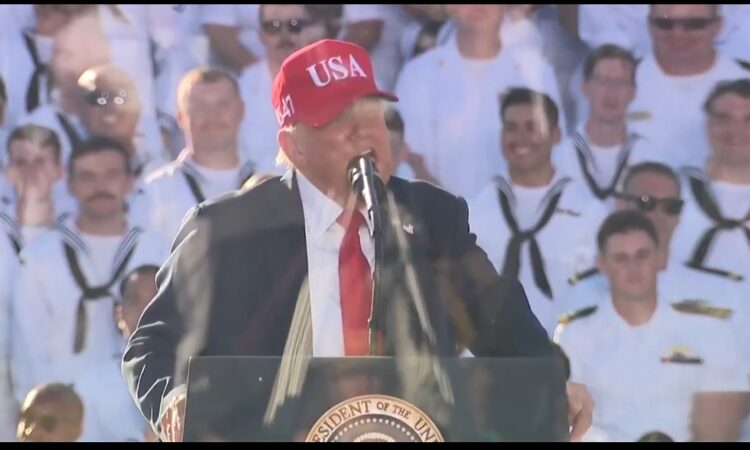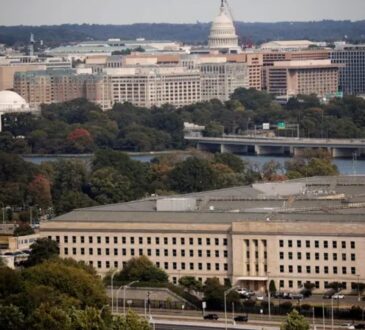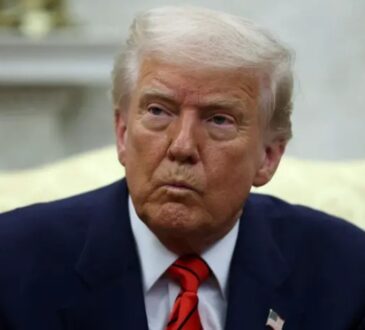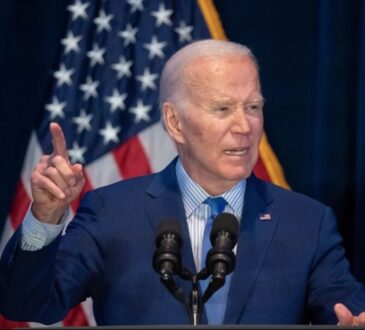Donald Trump Angers Americans After Making a Controversial Statement About Democrats During Navy Speech (Video)

President Donald Trump caused a storm of controversy when he stood in front of thousands of U.S. Navy sailors and called Democrats “gnats that we have to take care of.” His comment, made during what was supposed to be a patriotic Navy anniversary event, has drawn strong criticism from across the country. Many Americans, including political commentators, military veterans, and ordinary citizens, have said that his words were dangerous, disrespectful, and unworthy of a president.
While speaking to the sailors, Trump flicked his shoulder as if brushing away a bug, saying that Democrats are like a gnat that keeps bothering the country. He went on to accuse Democrats of wanting to give “all our money” to undocumented immigrants. His tone and gestures suggested that Democrats were pests or enemies that needed to be eliminated or handled, not fellow Americans with different opinions. For many listeners, this was deeply disturbing, because he was speaking not to a campaign crowd, but to members of the U.S. military who swear an oath to defend the Constitution, not a political party.
The event was held at the Norfolk Naval Base in Virginia and was supposed to honor the 250th anniversary of the U.S. Navy. Traditionally, such military events are non-political and focused on unity, service, and national pride. Instead, Trump turned the ceremony into something that resembled one of his campaign rallies. He even told the sailors, “Let’s face it, this is a rally,” confirming that the tone was more political than ceremonial.
Many people were quick to condemn the speech. Critics said that no American president should ever use the military as a stage for attacking political opponents. Several pointed out that referring to nearly half the country as “gnats” or suggesting that they need to be “taken care of” is a chilling kind of rhetoric. It treats millions of citizens—friends, neighbors, and family members—as enemies rather than part of the same nation. A Pew Research poll released earlier this year found that 45% of Americans identify with or lean toward the Democratic Party, while 46% lean Republican. That means Trump’s insult was directed at almost half of the population he is supposed to represent.
Commentators on social media reacted with outrage. National security expert Juliette Kayyem said that “take care of” is not a harmless phrase, and that Trump’s language shows a willingness to use power against his political rivals. Others, like Yassamin Ansari and Mehdi Hasan, said that Trump’s speech blurred the line between the military and law enforcement, warning that this is how authoritarian leaders build power—by using the state’s armed forces to threaten or intimidate political opposition.
Many people emphasized that such behavior violates long-standing traditions meant to keep the U.S. military nonpartisan. For generations, American service members have been expected to stay neutral in politics, serving the country rather than any one political party. Trump’s words broke that principle in a very public way. Some political experts even called for Congress to censure him, saying that this type of behavior endangers democracy and weakens public trust in the armed forces.
Online, reactions poured in from all corners of society. Former officials, journalists, veterans, and citizens described the speech as “shameful,” “un-American,” and “a betrayal of democratic values.” They said it crossed a line that no president before him had ever dared to cross. People compared Trump’s remarks to something one might expect from a dictator, not the leader of a democratic nation. Others expressed disbelief that Republicans and much of the media had not condemned his statement more forcefully.
Some listeners pointed out the irony that Trump, who avoided military service during the Vietnam War, was standing in front of active-duty sailors and telling them to view fellow Americans as enemies. One user on social media summed it up by saying that Americans should reject this kind of division and remember that they share more in common than what divides them.
Several critics reflected on the deeper meaning of Trump’s words. They said that democracy depends on the ability to disagree without dehumanizing one another. The founding principles of the United States—free speech, pluralism, and checks and balances—were designed to protect debate and dissent, not destroy them. Treating political opponents like pests or enemies threatens that foundation.
Others warned that this kind of speech normalizes hatred and violence. When a president speaks to the military and implies that a political party is something to “take care of,” it sends a dangerous signal. It can make political violence seem acceptable or justified. Commentators urged people not to dismiss this as just another shocking Trump moment but to recognize the real danger behind such rhetoric.
In the end, the outrage over Trump’s words isn’t just about one comment. It’s about the growing fear that American democracy is being eroded from within. Critics say that when leaders use their power to turn citizens against each other, they weaken the very idea of a united country. Many people are calling on Americans of all political backgrounds to speak out, to reject this kind of divisive language, and to defend the principles that keep the nation free and strong.
They argue that silence in the face of such statements is not neutrality—it’s acceptance. And if citizens stop caring about how their leaders talk about each other, the country risks losing not just civility, but the spirit of democracy itself.




